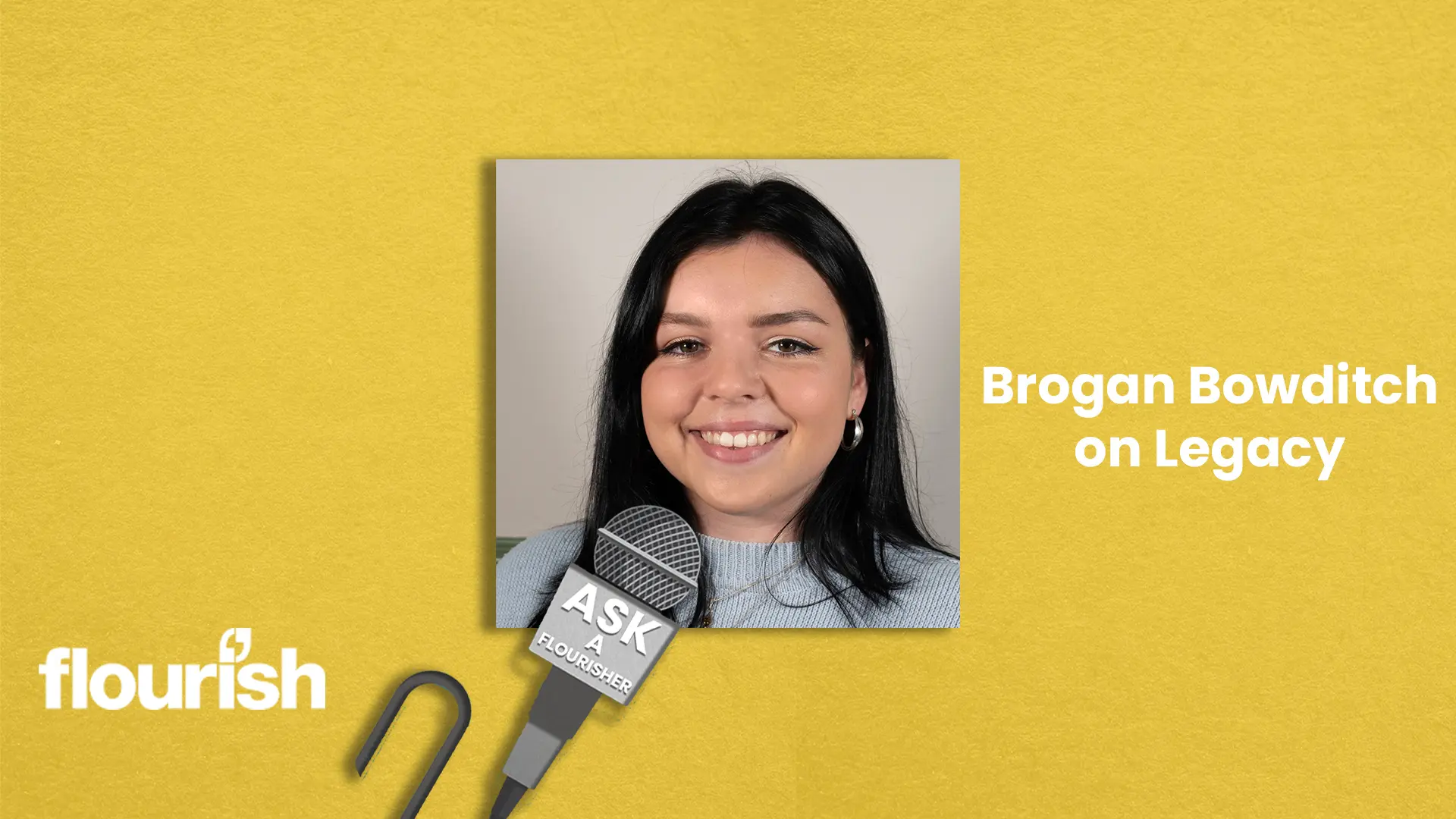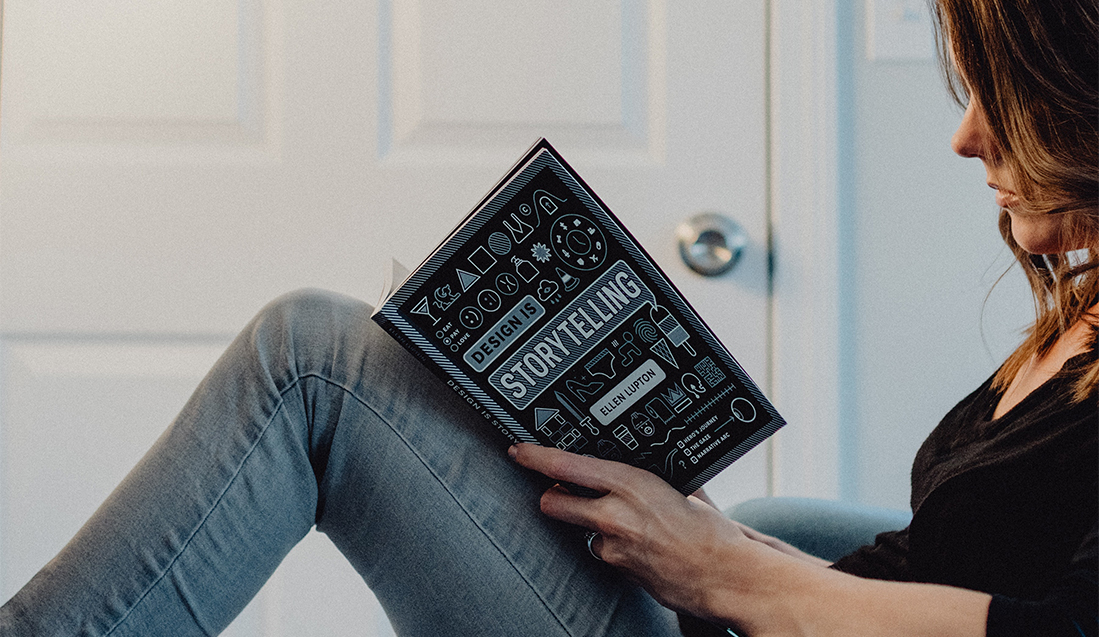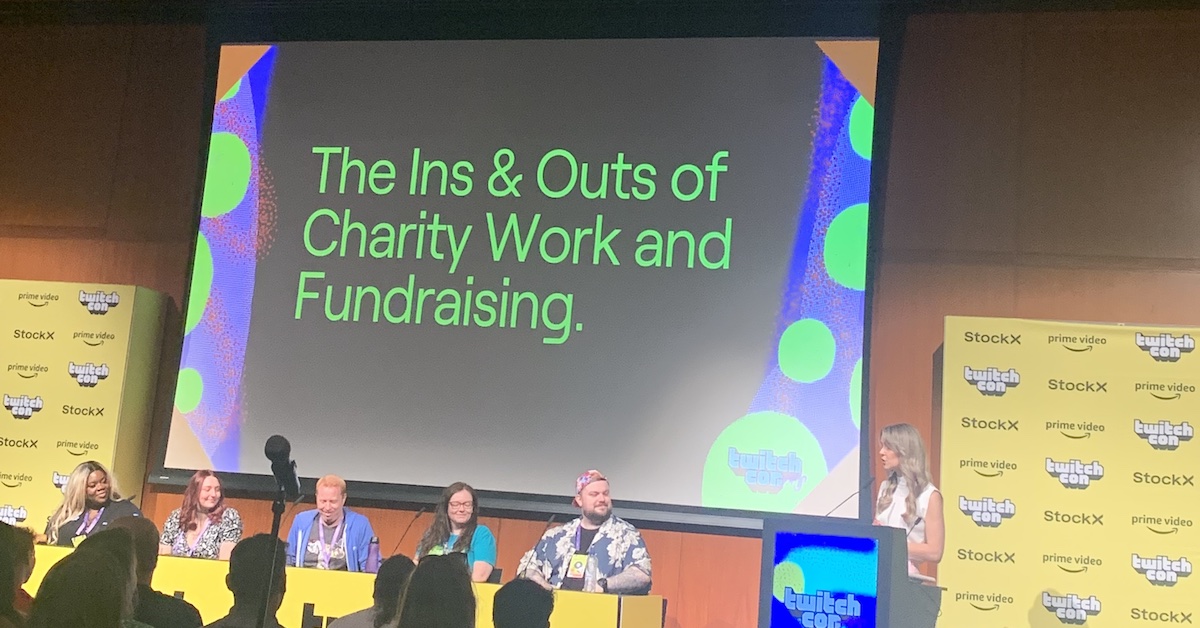'Ask a Flourisher' – Interview with Brogan Bowditch on Legacy
1. How long have you worked at Flourish?
Since April 2021. Before Flourish I worked as an Account Executive in pharmaceuticals for 2 years. I’m now a Strategic Account Manager and work mostly on legacy marketing for charities and not-for-profit organisations.
2. What is your area of expertise?
I work in a hybrid role sitting between Account Management and Planning for a range of clients, though my key areas of focus are for our lovely charity client projects. I have developed a specialism in planning campaigns geared towards Legacy fundraising and wider fundraising for both local and national not-for-profit organisations.
3. Tell us an interesting fact about yourself?
I once did a bungee jump in the UK – it was the best and worst thing I ever did.
4. What would you say is the most important part of planning any campaign?
Not rushing into it, and not just throwing all the money in the world at it in order to expect results… it’s so important to take a step back and think about the objectives of not just the campaign, but also the brand/organisation, and how the two will work together. A solid brief is far more likely to achieve strong results in my opinion! Before planning any campaign, it is hugely important to understand your audience. My background studying psychology at degree level has helped me to gain a better understanding of the thinking and behaviours that happen around different types of ad campaigns. By understanding who you are targeting, their likes, dislikes, behaviour patterns and where they spend their time and attention, you can make your marketing campaigns more targeted and effective.
5. What advice would you give to a client that is unsure of how much to budget for their marketing spend, either per campaign or annually?
Having worked with a large number of charity clients, we know how to utilise small budgets to get big results! My advice would be to chat to your agency about the objectives, the spend to play with, and let them do the work – that’s what we’re here for!
6. Related to marketing budget, how do you go about setting ROI targets for campaigns?
It’s super important to have realistic expectations – especially when trialling a new channel, creative or overarching approach. Consumer behaviour is influenced by so many factors, all of which we have to take into consideration to predict ROI. You should always aim to cover your campaign costs and work out how many donations, pledges or responses you need within your campaign. It can sometimes be a numbers game, but the more you know about your audience, the more you can predict the outcome of your campaign and tailor your communications to gain a high response rate. Your agency should also be able to help you with this and give and idea of costs vs income if you’re not sure.
7. Do you have a favourite piece of marketing tech? Why?
Not specifically, but I would highly recommend that every organisation should have a CRM in place – no matter how big or small the organisation is. There are some low-cost options out there for non-profits and it is always better to let the software do the hard work for you. Using a CRM helps you to gain audience insights more efficiently and inform user/donor journey planning so you can ensure the right information is sent to the right people at the right time. Using a tool like this can also help you monitor how you will hit objectives, and over time can help you gain a better understanding of your target audience and there fore use your budget more wisely.
8. Can you give an example of a campaign that you worked on which went particularly well and why?
The recent Crisis legacy campaign. I think it went well because, linking back to my answer to Q4, we took the time to stand back and look at the bigger picture, working out how each of the comms interlinked to form a multi-channel marketing campaign, yielding big results.
9. Can you give an example of a piece of work which did not go so well and tell us how you worked to improve it?
Can’t think of specific piece of work but there have been cases where we have turned down client work because their goals didn’t align with our recommendations. Sometimes we have worked through the briefing phase of a project and if we strongly believe that what the client wants to do is not the best use of their budget or time, we always like to think we have the integrity to tell them and recommend a different path.
10. Do you have a top tip for the readers about how to stay super organised when managing multiple tasks and projects?
Lists, lists, lists – this is the oldest trick in the book, but I couldn’t function without a list! Everything that comes into my inbox/is mentioned to me by a colleague or client is written down digitally in my planner with accompanying notes. When I have the time in my day, I’ll then prioritise in order to organise my week, with timing plans and delivery deadlines in the back of my mind as I do so. Working digitally means it is easier to move things and reference work by adding links etc.
Need help with planning a strategic campaign? Get in touch.



